By, Bolupe
- 85 Views
- 13 Min Read
- (26) Comments
Travel Health Tips
The 7 travel health tips are designed to guide you to healthy and safe journeys across countries in Africa, Europe and the Middle East. Health is Wealth can be classed as one of the cliches but true sayings of all time. Your health is important and when you are planning to travel, you need to invest some time researching the travel health tips you will need for your destination.
From obtaining a yellow fever certificate to travelling with medication, this post on travel health tips provides useful resources for healthy travelling because one of the things you need to take care of when travelling is your health.
If you wish to travel abroad, you first stop is the Travel Health Pro website, it comprises of the health resources of the National Travel Health Network and Centre (NaTHNac) which is a government website dedicated to giving doctors travel health tips and risks as they develop across the world.
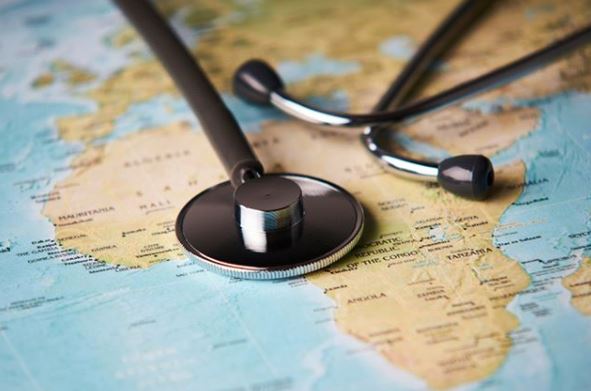
7 Travel Health Tips for Family Travel
- Visit your GP or family doctor and travel clinic before travelling. As appointments are difficult to schedule, it is advisable to arrange a visit well in advance.
- Take up a Family Travel Medical Insurance. Travel Insurance covers all pre-existing medical conditions. Find my guide to the best family travel insurance here.
- Look up the nearest hospital close to where you’re visiting and know the emergency numbers of the destination.
- Take copies of medical history for the children.
- Take Epi pens, inhalers and every medical equipment you child might require.
- Take precautions to beat jet-lag.
- Avoid Diarrhoea and take a filtered water system.
7 Travel Health Tips for travels to Africa.
Africa is my motherland and I love to encourage people to visit Africa at least once in a life-time. To visit Africa, you need to be aware of the health risks and follow the required travel health tips for a breath-taking healthy experience of Africa.
Travel Health Tips 1: Sunscreen.
In most countries in Africa, there are two seasons, the wet season and the dry season. Both seasons usually have temperatures ranging from 25 degrees Celsius to 45 degrees Celsius depending on the part of Africa you are visit and the time of the year you visit. Read about the weather and climate of Africa here. As a result you will need sun protection of a sun protection factor(SPF)of a minimum of 30. Get some tried and tested sun protection cream here. Apart from sun creams, you will need sun hats, sun glasses and light travel scarfs.


Travel Health Tips 2: Antimalarial Medication
Taking Antimalarial tablets can reduce the risk to malaria by 90%. The risk of getting Malaria is very high in sub Sahara Africa and it is not worth taking the risk. Visit your travel clinic in good time, you might need to be put on a schedule of 6 weeks before travelling. There are side effects associated with using Malaria tablets depending on your pre-existing conditions and where you are going. Some side effects includes insomnia, stomach upsets and dizziness.
Travel Health Tips 3: Yellow Fever Vaccinations
Yellow Fever Vaccine provides life long protection for people who intend to travel to countries in Sub-Sahara Africa. It is recommended for people from 9 months of age. Several countries require you to show you have been vaccinated before you are allowed entry. Yellow Fever Vaccines cost about £60 – £80 and can be obtained at approved yellow fever vaccine centres.
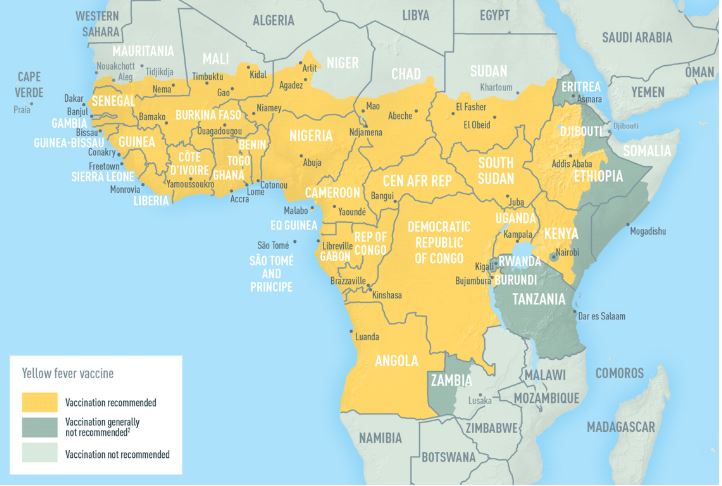
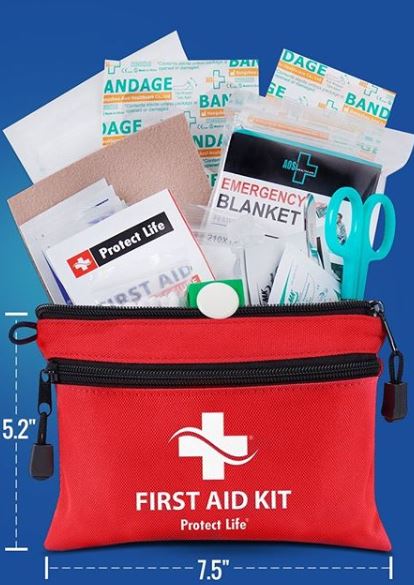
Travel Health Tips 4: Take a First Aid Kit.
Always take a First Aid Kit for your travels and include over the counter medications and products like Antihistamines, hydrocortisone, antibiotic ointment, aspirin, iodine wipes, hand sanitisers, digital thermometer, latex gloves, bandages, alcohol swabs and iodine tablets.
Travel Health Tips 5: Food and Water-borne Awareness
Food and Water-borne illness are caused by consuming contaminated food and drinks. To avoid food and water-borne illness, you need to take precautions by taking drinks served in unopened, factory produced cans and bottles with intact seals, distilled treated water, drinks served steaming hot like tea and coffee and you can take a portable battery operated device for disinfecting water.
In addition, avoid food prone to contamination like salads, food by street traders and food exposed to flies.
Travel Health Tips 6: Clothing
Wear clothing made from light breathable fabric.
Long sleeved clothing will protect your feet and hands from insects and crawlers.
Travel Health Tips 7: Footwear
Wear comfortable sturdy shoes, take along flip flops and sandals.

Air Travel Health Tips
With summer’s approach come plans for travel, including flying long distances. But the prospect of a long flight often raises health concerns. Especially in passengers who are older or have certain conditions, air travel and the related stress can have an impact on health. Here are a few trouble areas and some precautions you can take.
Deep-vein thrombosis (DVT). Not all experts agree on an association between DVT (blood clots in the legs) and air travel. Symptoms may not occur for several days, so it’s difficult to establish a cause-and-effect relationship. If there is one, it’s likely due to prolonged inactivity. Limited airline space can discourage moving about. Dry cabin air may also increase the risk of DVT.
Prolonged inactivity slows circulation, allowing small clots to form in the legs and feet. The body’s own clot busters kick in for most people, but in people with certain risk factors, the clots can get big enough to block a vein. These include cancer, heart disease, infection, pregnancy, and obesity, as well as recent injury or surgery. Smoking also raises the risk, as do birth control pills, selective estrogen receptor modulators, and postmenopausal hormones.
DVT in the calf aches and gets worse over several days. The pain may be accompanied by warmth and swelling in the area around or below the clot. A clot in the thigh or at the juncture of the thigh and abdomen causes similar symptoms. The skin may redden or turn bluish. If you experience any of these symptoms, see a doctor; be sure to mention that you’ve recently traveled on a plane.
The biggest danger of DVT is that a clot will break free and lodge in one of the pulmonary arteries supplying blood to the lungs. This potentially fatal condition is called pulmonary embolism. Symptoms include rapid breathing, pain when breathing, shortness of breath, chest pain that travels up to the shoulder, fever, and fainting. It is a medical emergency. Air travelers can do several things to reduce their risk:
- If you’re not at risk for bleeding and can tolerate aspirin, take a baby aspirin (81 milligrams) one-half hour before takeoff.
- Wear loose clothing and comfortable shoes.
- Avoid crossing your legs while seated.
- Get up from your seat and walk up and down the aisle at least once an hour. If you’re pregnant, request an aisle seat so that you can get up easily.
- Drink at least 8 ounces of water every hour or two and avoid alcohol, caffeinated beverages, and salty foods.
- Keep the space under the seat in front of you empty so you can exercise your feet and ankles occasionally.
- If you have any risk factors for deep-vein blood clots, consult your clinician. She or he may suggest support socks or stockings.
Reduced oxygen and air pressure. At cruising altitude, airline cabins have lower-than-normal air pressure and oxygen levels. Blood oxygen saturation during commercial flights can be 5%–10% lower than normal. If you’re in good health, your body can compensate, but if you have a lung condition, such as chronic obstructive pulmonary disease, or cardiovascular disease, you may need supplemental oxygen, even if you don’t normally use it. Ask your physician for advice several weeks before your flight.
If you need oxygen, call your airline to find out its policies and the cost. Airlines generally require advance notice, and the FAA doesn’t allow passengers to bring their own oxygen supply on commercial aircraft. Most airlines require a letter on your doctor’s letterhead confirming your need for supplemental oxygen while flying, along with the required oxygen flow rate. You’ll need a copy for every flight segment. Airline charges for oxygen range widely.
Ear pain. During takeoff and landing, cabin air pressure changes rapidly, disturbing the balance of pressure between the outer ear and the middle ear. Many people feel pain when the higher pressure stretches the eardrum, the membrane separating the outer and middle ears.
The Eustachian tube, which connects the middle ear to the back of the nose and throat, helps equalize the pressure on the eardrum (and causes the welcome pop you feel when the balance is restored). You can help the process by swallowing, chewing gum, yawning, or opening your mouth wide. A trick called the Valsalva maneuver may also work: Close your nose with your thumb and index finger and exhale gently against a closed mouth.
Jet lag. Crossing time zones often leads to jet lag, which can result in headaches, upset stomach and nausea, difficulty concentrating, and trouble sleeping. To help alleviate it, get plenty of sleep before you begin your trip. Keep well hydrated before, during, and after your flight. Change your wristwatch to the new time. As soon as you arrive at your destination, adjust your sleeping and eating schedule to the new time zone. This can be difficult if you’ve crossed many time zones, but try to force yourself to stay awake until the local bedtime, and get up in the morning when the locals do and get outside in the natural light. If you simply cannot stay awake until evening on the day you arrive, nap for no more than an hour or two. Engaging in social activities can also help your body clock adjust. When trying to stay awake, eat protein and vegetables and avoid starchy foods like pastas, breads, and rice.
Resources for travel health
NHS Choices
FCO
fitfortravel
NathNac
Key Important Advice
General advice leaflet
Mosquito bite advice
Yellow Fever leaflet
Rabies advice leaflet
Travelling with medicines
Tips on safe food and drink when travelling
Travel Health Pro Ebook
Zika: Sexual Transmission advice from Public Health England.

Useful Tips
Bugoff website
Tips on buying malaria tablets
Tips on sun creams and explanation of products.
Apps for Travel Health
Can I eat this – Free
Travel Health Guide – £2.99
Know as you go – Free
Lifesaver – Free
First aid – Free
Travwell – Free

Top Travel Health Tips by Experts
- I highly recommend mosquito wipes to anyone travelling to a tropical place. They come in a pack like baby wipes, so they don’t take up a lot of space, and they didn’t contribute to my carry-on liquid allowance like a spray would have.
- The best travel health tip that I can offer is to wash your hands for 30 seconds after touching anyone or anything. If you sing “Row, row, row your boat twice”, that’s 30 seconds.
- Plan to buy plenty of bottled water to stay hydrated on your journeys. You never want to drink tap water in foreign countries as it can be contaminated. Your best bet is to use bottled water to brush and rinse your teeth too! Don’t take chances!
- Travel with a colorful cotton scarf! Use it to shield your mouth and nose on crowded public transport, cover your shoulders or hair when visiting religious sites, and spruce up your travel wardrobe.
- I pack wipes in my carry on. I like to wipe down my airline seat and tray table. I also pack them in my luggage to wipe things down in my hotel room.
- Peel it, boil it, cook it or forget it… then you’ll avoid illness.
Always take food and water precautions when traveling as contaminated water may put you at risk for various infectious disease. - Make time to visit a travel health specialist at least four to six weeks before your trip to reduce your risk of illness abroad. It’s a good decision that you won’t regret.

Travel Health Tips – Eating.
In order to keep healthy and perform optimally while travelling, there are a few basics that you must maintain while travelling in order to stay healthy.
Let’s take a look:
EAT REAL FOOD.
So many people tell me that they cannot control the type of food they eat while they’re on the road, and to that I say, nonsense! Do a little research before you travel. Most cities have a Whole Foods Market or their local version of a natural foods market and most have salad bars. This is great for making a gluten and dairy-free salad that you can munch on in store, in your hotel or on the road. I also like to make a list of restaurants that I want to check out before heading to my destination.
PREPARE FOR EMERGENCIES.
If you are road tripping, carry along a cooler in the backseat to stash your favourite snacks. You can pack dry goods like nuts and seeds or canned salmon, but also have fresh goodies on hand – such as celery, carrots, snap peas and radishes. All of these tend to hold their fresh crunch, especially in the cooler. Apples, berries, pomegranate, avocados and lemons also fare well on the road. Hard-boiled eggs, nut butters, hummus and tahini are special treats when you need to nosh. If you’re travelling by plane, nut butters, grass-fed jerky, some fruit, kale chips, nuts and seeds are good options. Here’s more information on how to prevent a food emergency.
SUPPLEMENT WISELY.
Take supplements to keep you strong and help prevent infections.
What to expect from Health Care in Africa
Health Care in Africa is generally developing and while some countries like South Africa, Rwanda and Egypt have advancing health care facilities, some countries have basic health care facilities.
They are two main types of hospitals in most countries in Africa. They are the public and private hospitals.
Travel Insurance covers health treatment in countries in Africa, it is worth having a travel insurance.
Travellers should expect basic treatment in public hospitals and are advised to use private hospitals.
What to expect from Health Care in Europe
Health Care in Europe is well advanced with the latest technologies and health equipment but the major barrier is communication. Most countries in Europe speak their native language and finding a doctor who speaks English can be difficult.
They are two main types of hospitals in most countries in Europe. They are the public and private hospitals.
Travel Insurance covers health treatment in countries in Europe, it is worth having a travel insurance.
Travellers should expect good care from both public and private hospitals.
What to expect from Health Care in The Middle East.
Health Care in the Middle East is advancing with the latest technology and medical equipment. A high number of staff in hospitals in the Middle East speak a bit of English and communication
They are two main types of hospitals in most countries in The Middle East. They are the public and private hospitals.
Travel Insurance covers health treatment in countries in the Middle East, it is worth having a travel insurance.
Travellers should expect basic treatment in public hospitals and are advised to use private hospitals.
Travel Health Tips: Final Thoughts
Safeguarding your health when you travel is important and the travel health tips post provides information on how to enjoy your a healthy and safe holiday. It looks at 7 travel health tips for family travels and for travels to Africa. It also looks at what to expect from health care in Europe, Africa and the Middle East with emphasises on prevention is better than cure.

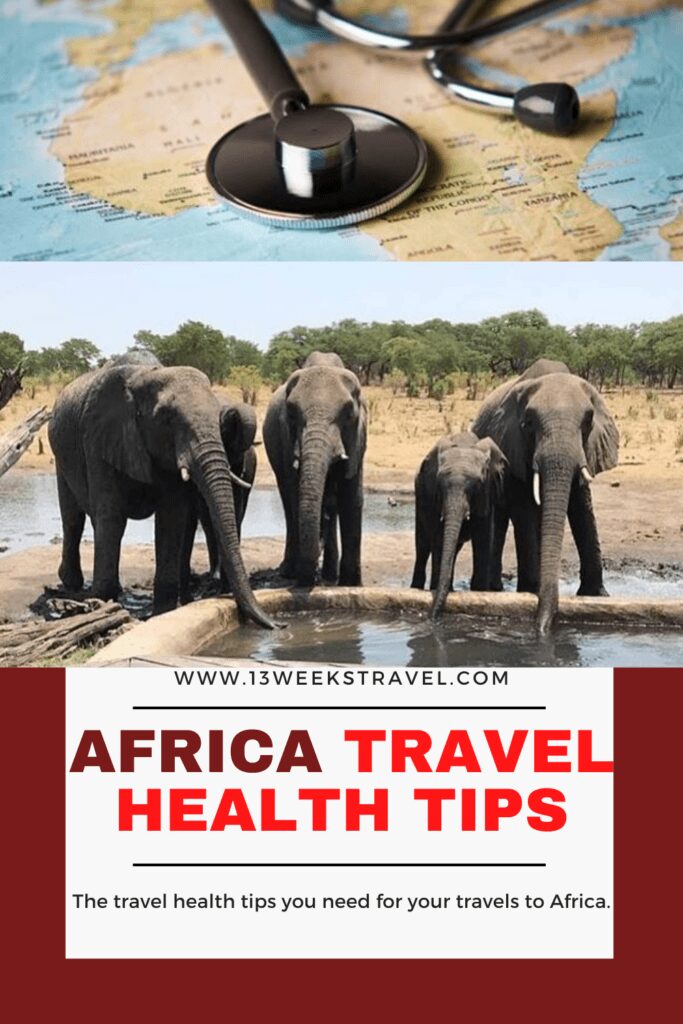
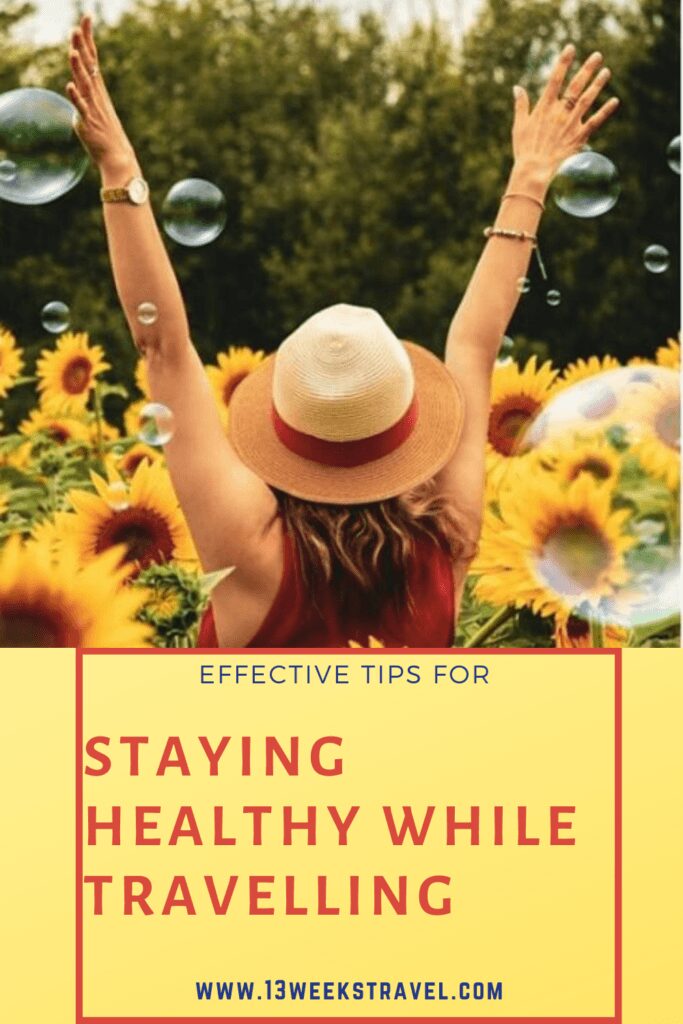
Leave a comment: Cancel reply
Need help booking?
Call our customer services team on the number below to speak to one of our advisers who will help you with all of your holiday needs.
1-555-555-555
Why book with us?
Best rates
Get the best rates, or get a refund.
No booking fees. Save money!
Largest Selection
140,000+ hotels worldwide
130+ airlines
Over 3 million guest reviews
We’re Always Here
Call or email us, anytime
Get 24-hour support before, during, and after your trip
Tags
Need help booking?
Call us on 1-555-555-555 for individual, tailored advice for your perfect stay or send us a message with your hotel booking query.
1-555-555-555
Categories
Recent Posts
Latest Posts
Looking for something more specific?
13 Weeks Travel YouTube
Archives
Why book with us?
Best price guarantee
Home we’ve ever known emerged into consciousness.
No booking fees
Inconspicuous motes of rock and gas laws of physics.
Flexible payment plans
Rock and gas laws the only home we’ve ever known.
Need help booking?
Call us on 1-555-555-555 for individual, tailored advice for your perfect stay or send us a message with your hotel booking query.
1-555-555-555
Categories
- Adventure Safari (3)
- Africa Travel (3)
- All-Inclusive Holidays (15)
- Beach (4)
- City Discovery (3)
- Cruise Voyage (5)
- Cultural Exploration (3)
- Educational Journey (4)
- Family Holiday Destinations (15)
- Food & drink (2)
- History (3)
- Luxury Family Travel (28)
- Luxury Retreat (6)
- Nature Excursion (6)
- Photography Expedition (2)
- Reviews (7)
- Travel Helpful Resources (4)
- Travel Tips (15)
Tags
Adventure Affiliate Links Travel blogger affordable luxury affordable luxury holiday Africa Africa Safari Holidays Africa top Tourist destination Africa Travel All Inclusive Holidays Amsterdam Beach Best Family Holidays Best travel products City Tour Cruise Cultural Discover Africa Disneyland Paris Family-Friendly Things to do Family Travel food gastronomy Greece history How to... lifestyle Luxurious destination luxury all inclusive resorts Luxury Experience Luxury hotel Luxury School Holiday Travels Luxury travel tips Photography Road Trip school holiday tips Tourism Travel motivation Travel Products Travel Products Review Travels Travels with family Turkey Holidays UK Travel where is abu dhabi located Wildlife
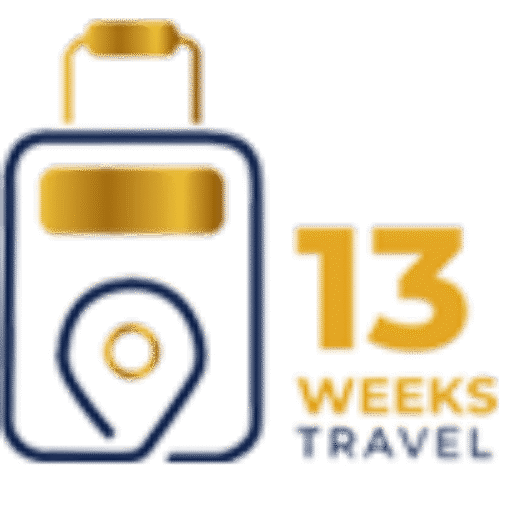









Comments (26)
Magdalene,
05 May, 2020Wow, thanks for this tip. I never really know travel insurance is important for my health too.
Bolupe,
05 May, 2020Yes, a good travel insurance will cover any health accidents you have on your travels.
Suman Dhar,
05 May, 2020Some great tips! Bookmarked for my upcoming trip post lockdown!
Bolupe,
05 May, 2020Lovely!
Rayo,
05 May, 2020These tips are very useful, this is my top travel blog. I am among the people who can’t control what they eat when they travel ??. I barely do food research smh. Thank you for sharing.
Bolupe,
05 May, 2020Thank you Rayo for choosing us as your top travel blog, that’s so kind. I think a lot of us eat what we like when travelling but once you’re protected you will fine.
emma,
05 May, 2020This is a fantastic post! we are looking to visit Africa once Covid-19 is our of the way! I definitely am guilty of not researching food and end up living off chips.. Thanks for sharing! great information! iemexploring xx
Bolupe,
05 May, 2020It’s great you’re looking to visit Africa. It is truly a magnificent place. While it’s great to stick to snacks and food we’re used to, it’s also lovely to try new dishes.
Alice Mola,
05 May, 2020I can see from your post that travel insurance is super necessary in the off-chance you actually get bit/hurt by something! I think recommending private hospitals, in this case, is a good choice. Wonderful post x
Bolupe,
05 May, 2020You’re right about travel insurance and going with the private hospitals in some countries is the best choice.
sumit walia,
05 May, 2020hi
you have covered almost all the subtopics in this post. Yes, local cuisine and hygiene are one of the key factors which can make or break a vacation. Keeping a conscious safe view of this while indulging in the local cuisine is so important. One should also be aware of what kind of eatables one is allergic to and make sure that is avoided.
Bolupe,
05 May, 2020Thanks, it easy to indulge in sweet local delicacies by we still need to be mindful of the implication they might have on our health.
Katrina Rhea Durana,
05 May, 2020Nice tips! We are so busy planning where to go and what to do that most of the times, we forget about our health.
Bolupe,
05 May, 2020You’re right, it’s easy to forget the health planning that is also involved in travelling.
Subhashish Roy,
05 May, 2020The way we used to travel carefree is a thing of the past. From now it would be so different and unless we are prepared with the do’s and don’t s it could spoil our trip completely. Love that you have given tips for different parts of the world.
Bolupe,
05 May, 2020That’s true, no one will risk travelling without proper health planning and vaccines.
Cecilia,
05 May, 2020This is full of some great tips. Knowing what to expect from healthcare in different countries is something useful to know in case of emergencies when traveling. Luckily I have never been that sick when traveling, but there is a first time for everything!
Bolupe,
05 May, 2020Yes, there is always a first time for everything so we need to be prepared.
Trisha Velarmino,
05 May, 2020I started traveling when I was 19 and always thought I was invincible. 6 years ago while backpacking Colombia, I had an accident and lost my front tooth. It cost a lot and I was really shocked about the expenses. From then on, I promised myself to always buy travel insurance and hope that I wouldn’t use it. Thanks for sharing these health tips. They are very relevant at this time. Keep safe! Xx
Bolupe,
05 May, 2020Oh dear, I’m sorry about your accident. I think this is why we need to spread the news about healthy and safety tips while travelling. I hope you keep safe too.
Agnes,
05 May, 2020It is an interesting and so informative article. It’s a very useful travel health tips for families. But I think it is useful for everyone who plans holidays. I always start my preparations from travel insurance. First aid kit is crucial for me when I pack myself.
Bolupe,
05 May, 2020I’m pleased to read that you found this article informative for every tip of travellers and not just family travellers.
Manjulika Pramod,
05 May, 2020Thank you for these useful tips. Health and hygiene will be very important for the future travels. Post Covid, we would really need to be prepared with masks, sanitizers, gloves and more. Health insurance is a must for sure.
Joe Ankenbauer,
05 May, 2020The best tip you have here in my opinion is the first aid kit and sunscreen. You never know when you’ll need a pain killer or if your going to be able to even find sunscreen when you’re in country. Great tips, thank you for sharing!
Fizz,
05 May, 2020So much info in one post! Very important tips here. Thank you for sharing.
Bolupe,
05 May, 2020Thank you. We will need these tips more than ever now.